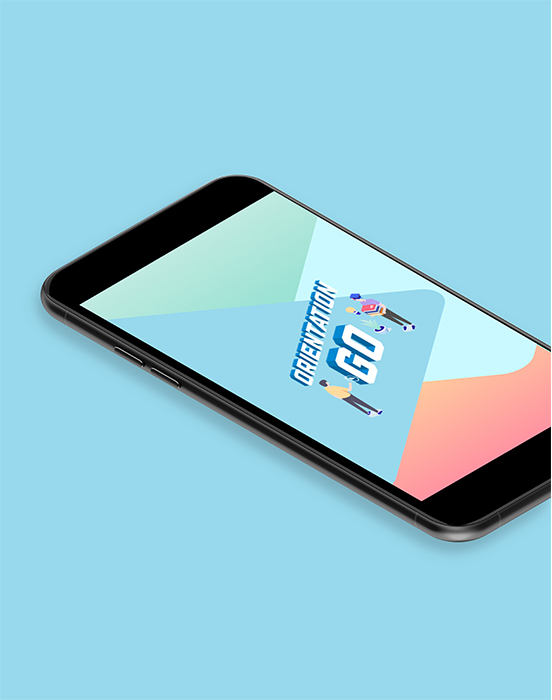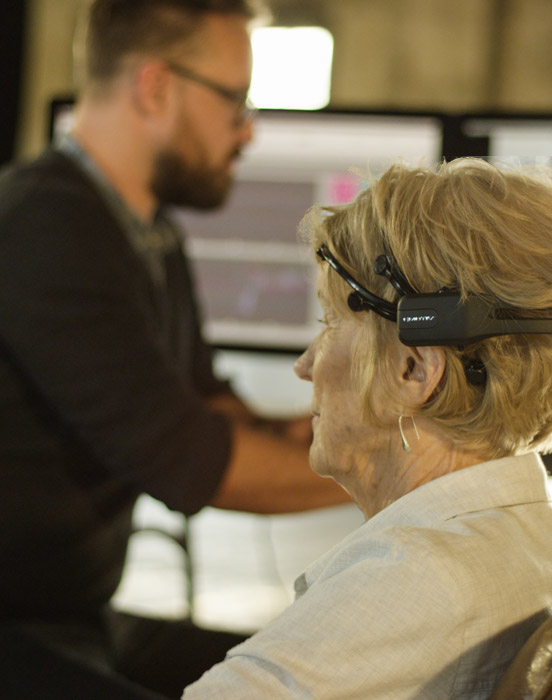Creating a safe, anonymous online mental health service to help young people feel heard and supported

Value and Impact
2.5 million people
In the last 12 months (Australian user data for the 2023–24, financial year), turned to ReachOut services for mental health and wellbeing support
89% of users
of users of the moderated Online Community felt it was safe and 82% of users of ReachOuts PeerChat service felt it was trustworthy
80% of educators and health professionals
of educators and health professionals said ReachOuts schools content gave them greater knowledge of support strategies to use with young people
74% to 78% of young people
of young people aged 14–25 years who had used PeerChat in the past year said they felt better after they spoke with a peer worker and would recommend it to others
“It was cool because I felt I was in control. We talked about ways that I could manage some of my feelings, and my peer worker shared what had worked for them in the past. It was such a good place to start for me so I could look out for myself better.”
Anonymous - PeerChat participant, 19
The mental health and wellbeing of young people is a major public health concern. Over 75% of mental health problems occur before the age of 25 and young people are the least likely age group to seek professional help.
There are numerous systemic barriers for young people seeking professional support. There’s an urgent need for early intervention, youth-centred services that respond to the increasing – and varying – pressures that young people today experience. We need new support models addressing young people’s needs and desirable futures.
Our research revealed young people needed accessible, non-clinical, and personal support. Working hand in hand with the ReachOut strategic design team we worked with them to support the research, evaluation, design and build of a Peer-2-Peer communication channel - PeerChat, as part of their business strategy to create more relevant and useful services for young people in need of support.
We worked with the team at ReachOut on service and product design, starting with research to understand user needs and with the use of an online self-reflection experiment, we found young people simply wanted someone to listen and validate their struggles. One-on-one online chat with a trained peer emerged as their preferred method for help.
The service and product design decisions were co-created by working with a community of young people, peer workers, and clinical psychologists. This collaborative approach enabled us to deliver a fit for purpose, data and user driven solution to overcome the barriers and support the needs of young people.
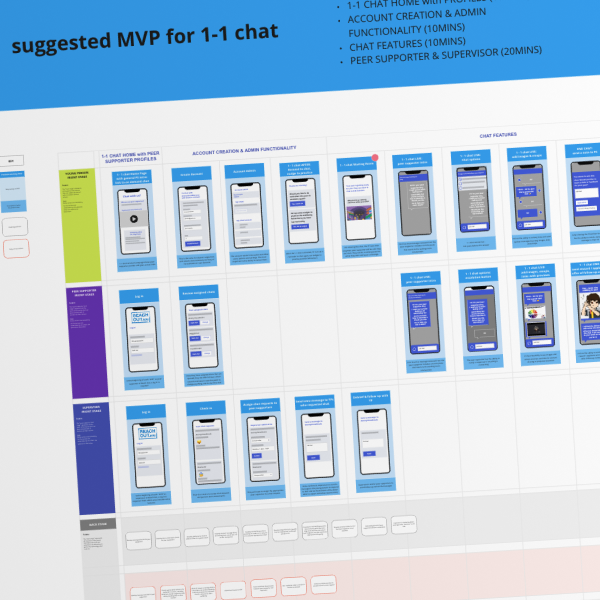
Deep Service Design Thinking
Bringing together peer-workers, industry experts, and clinical psychologists we were able to explore the depths of user needs for this service.
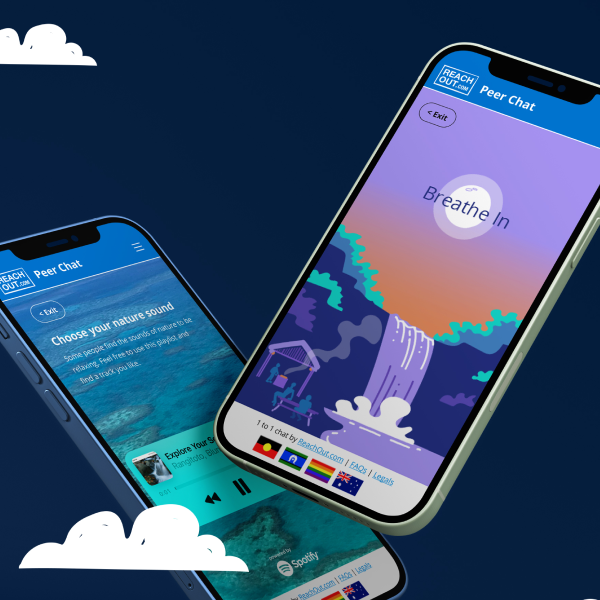
Insight driven design
Research revealed users felt anxious while waiting for a peer to join the chat - this prompted the design of a breathing exercise to create a sense of calm and a reduction in anxiety.
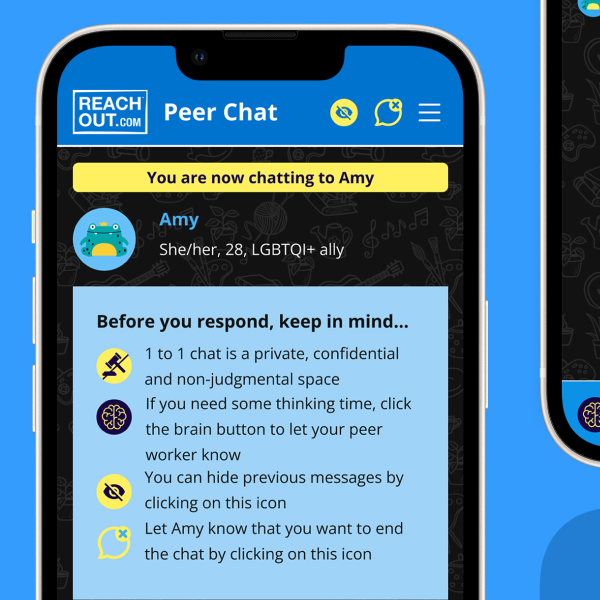
User-controlled Experience Design
The insights led us to enabling users to control the pace of the conversation with an innovative ‘thinking time’ button, reducing any pressure to respond quickly.
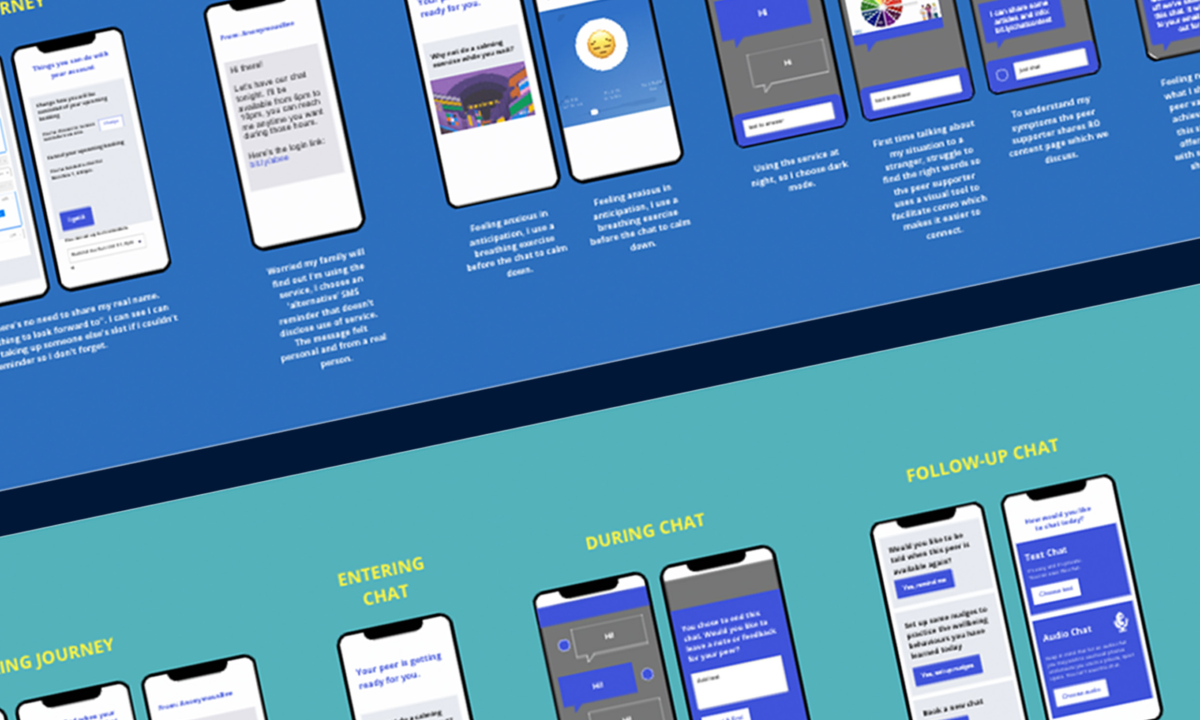
Blueprints for fast-tracking design
We created a product design blueprint where we combined service design with UX to move more quickly to the UI design stage.

Enhancing Privacy and Support through Reflective Technology
The texting format is fundamentally anonymous and reflective, increasing accessibility and ease for sharing sensitive topics.

Functionality created for emotional support
Supportive messaging, coupled with user-controlled features provide emotional wellbeing and make young people feel safe and heard.
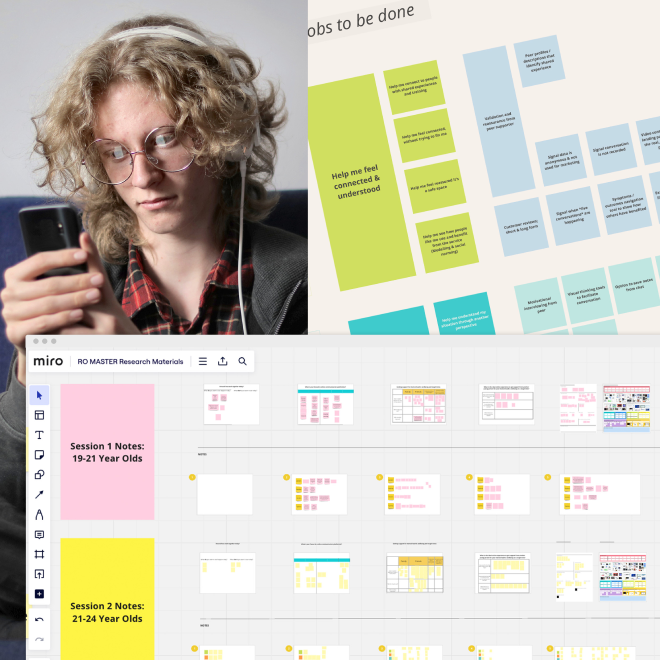
Customer immersion
Our extensive and varied techniques in research gave us a deep understanding of the user needs and barriers to better inform our design.

Using data for good
Using data from the breadth of research, we were able to bring in design elements that provide safety measures, such as being able to hide previous messages that could be triggering.




